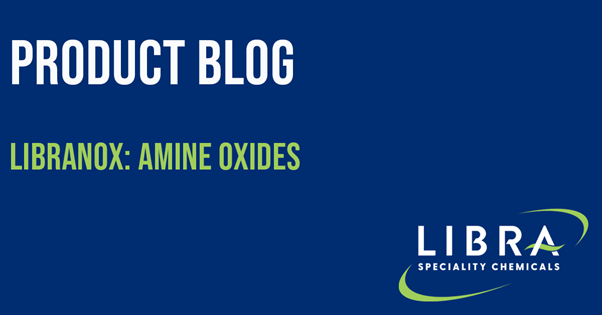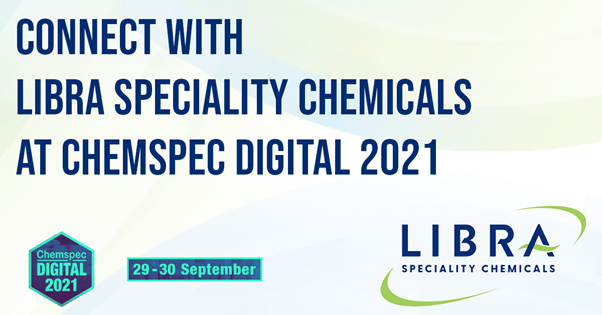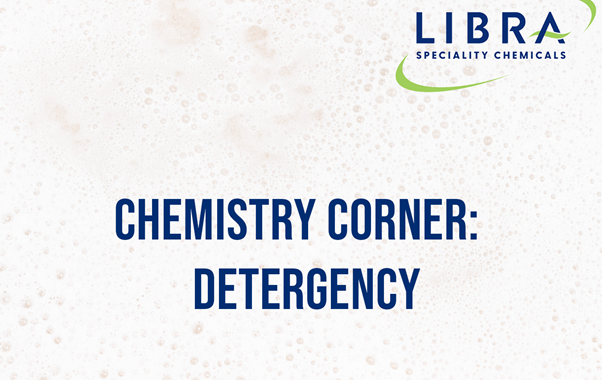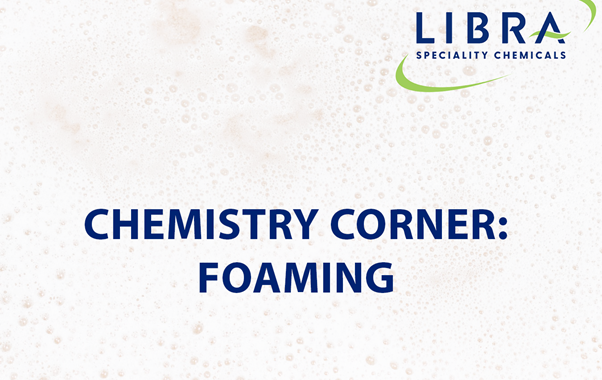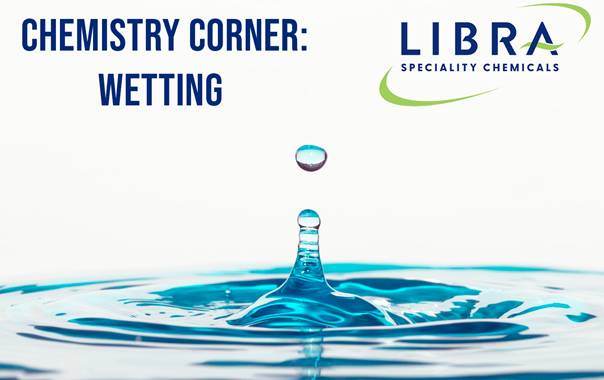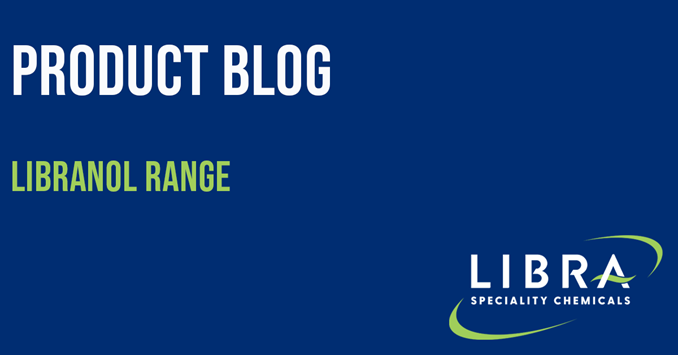Libra Speciality Chemicals are looking forward to virtually exhibiting on the 29th and 30th of September 2021, meeting and greeting you all online with your queries or interests about our high-quality products. So, make sure to come along and chat to our experienced sales team. Read More
Libra Speciality Chemicals supplies vital performance-enhancing surfactants for surface cleaning products – Libranox: Amine Oxides
The Libranox Series of amine oxides perform as excellent detergents, as well as providing foam boosting and foam stabilising properties. Libranox are often formulated to provide viscosity and dominant cleaning powers as they excel at grease emulsification and soil suspension. Read More
Connect with Libra Speciality Chemicals at Chemspec Digital 2021
On the 29th and the 30th of September, Libra Speciality Chemicals will be attending Chemspec Digital 2021. Join us over the course of these two days to virtually network with our experienced sales team. Read More
Chemistry Corner: Detergency
Detergency is defined as the ‘cleansing quality/power’ in a process that involves water and energy (mechanical or thermal). Detergent surfactants are water-soluble cleansing assistants that combine with impurities and dirt to make them more soluble and differs from soap in not forming a scum with the salts in hard water. Energy is required to facilitate the removal of dirt from a surface, therefore the role of surfactants is to reduce the energy required to achieve cleaning. Read More
Chemistry Corner – Foaming
A foam is produced by the distribution of a gas in a liquid. Without a surfactant to stabilise the foam, the liquid and gas would quickly separate causing the foam to collapse. This is primarily caused by drainage of liquid within the film, which causes thinning and the eventual collapse of the foam. Surfactants therefore act at the liquid, gas, or solid gas interface to stabilise foam to reduce surface tension. Read More
PIONEERING CHEMICAL FIRM TO DOUBLE IN SIZE AFTER INNOVATING NEW GREEN INGREDIENTS FOR EVERYDAY CLEANING PRODUCTS
An Irlam firm is set to double in size after developing innovative new chemicals that will help make products from shampoo to washing-up liquid greener and more sustainable, with financial support from Lloyds Bank. Read More
Chemistry Corner – Wetting
Wetting is the ability of a liquid droplet to spread over a surface. Wetting agents are also known as surfactants – surface active agents.
Wetting agents are substances that reduce the surface tension of water to allow it to spread droplets onto a surface, increasing the abilities of a liquid. Lowering the surface tension lowers the energy required to spread droplets onto a film, thus weakening the cohesive properties of the liquid and strengthening its adhesive properties, increasing its penetrating, and spreading qualities through previously water repellent surfaces. Read More
Product Blog – Libranol Range
If you’re looking for a non-ionic surfactant that is compatible with most surfactant types to incorporate into your products, the Libranol series will meet your needs exactly. Read More


